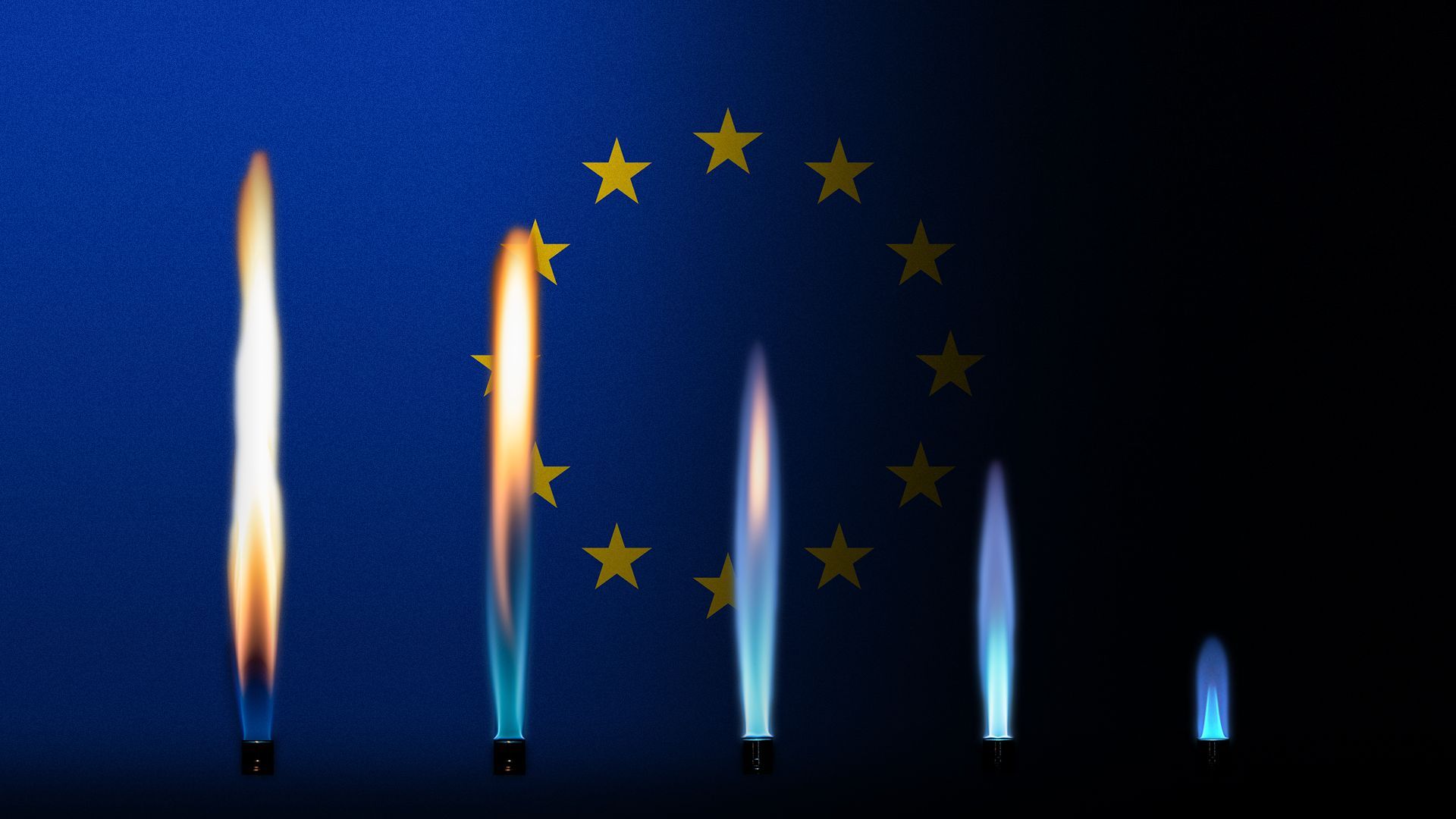| The dust is settling on the new U.S.-European Commission energy plan, so let's explore some big themes that have emerged since President Biden unveiled it, Ben writes. Catch up fast: U.S. and European officials on Friday announced new joint efforts to help cut the continent's reliance on Russian fossil fuels. - One big effort is to boost the already expanding U.S. LNG exports to Europe, with a goal of an additional 50 billion cubic meters annually through at least 2030.
- It also vows cooperation to help cut EU gas demand via the faster deployment of heat pumps, smart thermostats, faster renewables additions and more.
Zoom in: Here's six takeaways on the rollout and its aftermath. 1. American LNG can help but it's far from a silver bullet. Russian gas exports to Europe last year were roughly 155 bcm. 2. It puts a bright spotlight on infrastructure. Reaching the target will require more export and import facilities. Part of the plan calls for faster EU project reviews. 3. The U.S. export infrastructure ramifications depend on who you ask. The White House, in a statement, tells Axios the 50 bcm target "could be met with already permitted expansions to existing facilities and completing of already permitted and under construction facilities." - But Europe is only one destination, and Asia has historically been the largest cumulative destination for U.S. LNG, even as more shipments head to Europe now.
- "The reality is additional infrastructure currently pending before FERC and DOE will also need to be authorized in order to meet the requirements and also meet existing contractional obligations for the facilities already in operation," Charlie Riedl, executive director of the Center for Liquefied Natural Gas, an industry group, tells me via email.
- The NYT has a good look at all this.
4. Climate activists are worried about the White House's posture. "Allowing for the expansion of new and expanded gas export facilities would lock in decades of reliance on risky, volatile fossil fuels and spell disaster for our climate and already overburdened Gulf Coast communities," Kelly Sheehan, the Sierra Club's director of energy campaigns, said in a statement. 5. Another thing to watch: how it affects battles over U.S. pipelines. Dustin Meyer, the VP of natural gas markets for the American Petroleum Institute, stressed that pipeline capacity is needed to move more onshore gas to export terminals. "That's the sort of area where you need clear and consistent permitting. In many ways, it's just as important as what the clear consistent permitting is for the export facilities themselves," he said in an interview. 6. The natural gas industry and its investors see bullish signs. The Wall Street Journal reports that the share prices of big U.S. natural gas producers and exporters jumped on Friday in the wake of the news. | 







No comments:
Post a Comment